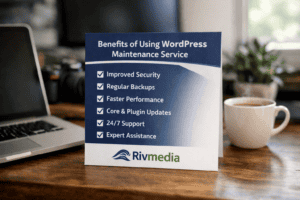Table of Contents

Many people are unsure about which is preferable between working for someone else and owning a business. Which do you think is better: a job or a business?
Everyone who studies personal growth consistently states that businesses are often preferable to employment. Working for others is what a career entails. If we want to work, it means we must work for a boss. Regardless of whether the employer makes a large profit or not, you will be paid a set wage. Doing business, on the other hand, entails being your own boss. When it comes to running a company, you have the option of deciding how much profit you need to make. However, we must recognise that both options have numerous advantages and disadvantages.
Job vs Business

Jobs are generally better because, no matter what happens, you can be paid on time. As a result, jobs are a safer and more stable choice. When you work, you can gain a certain amount of money.
Businesses, on the other hand, are the polar opposite of that. The amount of money you make is only determined by your efforts, plans, and abilities. It’s possible that you won’t be able to earn even a single coin. When it comes to business, being good takes time because there are so many ups and downs to contend with. As a result, companies face greater threats than employment. No one can definitively address the question of job vs business.
However, this does not imply that you must work. Your attitude, expertise, determination, and financial condition all play a role. A corporation is usually equated to a long-term investment. A job is simply something that pays a monthly wage. I’m just giving you an idea of the benefits and drawbacks of both company and jobs. It is up to you to choose the right one for you.
What Is A Job?
A job can be described in a variety of ways. It can be classified as a full-time or part-time job or a piece of work. We should consider it as an obligation or responsibility for a particular task if it is not otherwise. Several determinants characterise employment. Our source of income is a paycheck. The majority of the time, it is a wage that has been set in stone. However, it varies depending on the type of work. However, the most important feature is that our pay is often determined by someone superior to us.
The majority of the time, wages are fixed, and only commissions and promotions cause them to adjust.
In most cases, a career is risk-free. There is no excuse to fire you if you are doing your duties properly. Also, regardless of what happens, you will be paid at the end.
Working for others is what a career entails. It implies that we have a boss and must report to him. He makes a profit, and you get a paycheck as compensation.
What Is A Business?
A business can be described as a company with financial, technical, or non-commercial goals. It is a group of one or more individuals who collaborate to accomplish a common purpose. Profit-oriented or social-service-oriented businesses are both possible. It means that companies can be divided into two categories based on their goals. Profit-oriented organisations and non-profit organisations are the two types of organisations.
A company can be divided into three categories based on its size: big, medium, and small. Getting into business entails being a boss. When you’re in business, you have complete control over your decisions, and the success of your company is entirely dependent on you. (Experiment with small business concepts.)
The above is only a basic understanding of what a job and a business are.
However, numerous characteristics can be used to distinguish between a job and a business. Let’s talk about the advantages and disadvantages of each.
Before I get into the benefits and drawbacks of various occupations and companies, I must first state the following.
It’s not wrong to do a job, and it’s also not wrong to run a company. Both have their benefits and drawbacks. It’s up to you to figure out what works best for you. As I previously said, the work vs company debate is one that no one can win.
Pros and Cons of Having A Job?
Diversified working opportunities
A company is made up of several different employees. When you work, you can interact with a variety of job positions and projects. You will interact with various positions and gain different perspectives from each of them.
Working will provide you with expertise in fields such as finance, human resource management, and operations management, among others. Typically, everybody works to gain those skills because work is the best place to learn.
No need for strategies
You won’t be overwhelmed because your manager will show you the way and provide you with the strategies you’ll need to succeed. All you have to do is follow your superiors’ orders and obey the instructions you get. You are not required to consider the techniques.
Additional benefits
Working is the safest choice because employers provide more incentives to workers in order to inspire and care for them. Besides your basic salary, you might be eligible for incentives, insurance, and other benefits.
A place to show skills
When doing a job, there are so many group ventures, and group works to participate in. You will be required to collaborate with various individuals, allowing you to learn new skills and demonstrate your abilities.
Promotions
Promotions are something you’re all familiar with. Working will help us advance in our careers. We can start as a lower-level employee and work our way up to a top-level manager because of the promotions. In addition, as you advance in your career, your pay rises.
Fewer responsibilities
All you have to do is complete the tasks that have been assigned to you. You don’t have to worry about other workers, their homes, their well-being, or anything else because employers are in charge of those things.
Holidays and vacation
When you work at a job, you follow a set of procedures. Working hours and days are set, and they do not adjust unless there are exceptional circumstances. You will be able to enjoy your holidays and vacations as well as your free time after work. After working hours, you are a free bird. It will be easy to keep track of time.
Easy to plan the life
Your working hours are consistent, and your pay is consistent. As a result, you’ll have no trouble managing your time and money. There is no chance or doubt. You definitely know when to work and how much you are paid. It makes life planning much simpler.
Disadvantages of Having A Job?
Don’t receive the actual outcome
You’reSomebody employs you, and your job is to maximise their profit and make them wealthy. You are trading the effort for a certain amount of money in order to do so. Even if you try really hard, nothing can change in your life. However, if you work hard, the employer will become wealthier. This basically means that you are a worker who is paid a certain amount of money and works to maximise someone’s income.
High competition
The employment market is extremely competitive. You would need a lot of qualifications to get a job. Furthermore, promotions are the only way to advance your career while you are working. As a result, you’ll have to look for opportunities to advance your career. Finding a job and getting a promotion are also difficult tasks.
No space to show your tactics
Others will not recognise your strategies unless you are a top-level boss. All you have to do is obey someone’s command without questioning its merits or drawbacks. There will be no space to present your strategies or provide new suggestions. And those are the upper-responsibilities. level’s It’s not yours.
Technology impacts
This only applies to workers who perform tasks that a computer, robot, or AI might perform. With advancements in technology, more businesses are attempting to automate their processes. As a result, their job security is deteriorating day by day.
Discrimination
Perhaps you’re new to the business. You’re all aware that acclimating to a new environment requires time. You’re dealing with a lot of issues from old workers right now. They will try to threaten and discriminate against you. This is the most popular scenario for newcomers.
Rigid rules
If you have a job, you are unable to function as you wish. Even if you don’t like them or if they don’t suit you, you must obey the company’s rules and regulations. These rules and regulations can cause your normal way of life to change.
Limitation for the development
Climbing one rung of the ladder needs a lot of effort. It is only when you are promoted that your career progresses. Until then, the progress will be stifled. Many people begin their careers as lower-level employees and end up in the same position. This means you’ll have a lot of restrictions on how much you can go in your career.
Occupational Deceases
Job versatility is limited. Perhaps you’re working on a hazardous process that could hurt you, or perhaps you’ve been doing the same job for years. Both of these factors may contribute to occupational deceases. Doing the same thing repeatedly for years when engaging in hazardous processes can lead to occupational diseases. These illnesses may be physical or emotional in nature.
Reasons To Start A Business
You can be your own boss.
Working for somebody else is not conducive to satisfaction. You’ve started a company, and now you’re the boss. You have no one to give you instructions, so you must do it yourself. If you have workers working for you, you should issue them orders. You are free to play by your own rules and make your own decisions since your company is your personal empire.
Freedom to make decision
You’re the boss, so you don’t have to ask permission from anyone or wait for an order to make a decision. You have complete freedom to make your decision. Nobody is going to be able to discourage you. Make sure, though, that your decisions are always right.
Can achieve your vision
Do you aspire to be good in life? As a result, business is the most effective tool for realising the dream. You can build a life vision that is in sync with your company. You have complete control over your future, earnings, and, most importantly, your balance sheet. Not someone’s.
You will be rewarded for your efforts, and you will be able to enjoy it on your own.
Flexibility
You have control over the office, working hours, dress codes, guidelines, and regulations, among other things. The degree of flexibility is excessive. You don’t need to request time off or holidays because you are free to do whatever you want.
Profit
Since you are not working for someone else’s balance sheet, the hard work pays off. You are responsible for your own financial statements, and you will improve your profit margins by being more tactical and astute. There is no one to tell you how much money you can make at the end of the month, and there is no cap on the amount of profit you will make.
Job creation
If you own a company, you have the ability to create jobs. It is, in reality, beneficial to the economy. However, consider your family. It’s possible that certain members of your family are unemployed. You should create jobs and then get them to work on them. This can also assist you in reducing your workload.
More experience
As a business owner, you gain expertise in a variety of areas, including finance, economics, human resources, manufacturing, and operations. You gain the opportunity to learn about any aspect of the business world. Finally, you will gain more information and become a well-versed person. Doing business is a fantastic way to put money into yourself.
No one to fire you
There is no one who can fire you if you do anything wrong. You are in charge, and if you make a mistake, you can fix it and start over. There is no one to blame, dismiss, or discriminate against you. That liberty is yours to enjoy. You should keep your mental and physical health in good shape.
Disadvantages of Doing A Business
Need finance
You can’t start a long-lasting business without money. To start and run the company, you’ll need to secure funding. You may need to take out loans, sell your personal property and use the proceeds, and so on. You can’t start a company without a solid financial foundation. You should also be a person who knows how to manage money.
High risk
It is riskier to do business. And there’s no way to know if you’ll make money. It is still up to you and your staff to determine whether you succeed or fail. You would also be more anxious as a result of this. It’s possible that you’ll have to sacrifice time with your family in order to focus on your job. You may be more tired, and you may experience a conflict between your personal and professional lives.
High stress
You are the business’s owner, and your actions will determine its success. Before making a decision, you must consider it a hundred times, which can cause stress. You don’t have set working hours, so you have to work without worrying about taking a break. In addition, you will be responsible for your family and the family of your employee. These can cause a lot of tension.
Customers’ deadlines will also place pressure on your back.
Competition
In today’s economy, there are a plethora of competitors. To win them over, you’ll need to try a lot of new stuff and keep your company up to date with technology. If they succeed, the company will fail, and you will be unable to raise money or pay your workers.
Imbalance of life
As I previously said, when you are in company, you have more time to relax. It can, however, be used in the opposite direction. The explanation for this is that you will become the company’s leader, and you will determine its success. To make your business profitable, you will need to work without sleep at times. This, as a result, is less time spent with family and an unbalanced life.
P.E.S.T.L.E.D.G
All aspects of the macro market climate would have an effect on you. The outside world will impose more laws and regulations, and you will have to obey them. Political, economic, social, technical, legal, ecological, demographic, and geographic factors will all have an impact on your market.
Manage conflicts
If you have subordinates, you will need to consider their favour as well. Otherwise, problems will arise. You’ll need to keep inspiring them and fixing their problems regularly. This basically means that you are responsible for a large number of people.
I’ve discussed the benefits and drawbacks of both, and now I’ll compare the two based on various variables. However, using the following considerations, we can still have a proper response to the job vs business debate.
Risk
Jobs are almost completely risk-free. The only danger is that you will be fired.
Businesses face greater risks, which the owner must bear.
Investment
A job does not necessitate investment.
However, to start a company, you’ll need a good investment.
Profit
If you work for a living, you will not make a profit. You’ll get a portion of it, which we’ll call a “salary.” It’s also a set wage.
If you run a company, you get to keep all of the money.
Qualifications
To apply for a position, you must have a wide range of qualifications.
However, no qualifications are needed to start a company.
Motivation factor
Promotions, bonuses, and incentives, among other things, serve as motivators for employees.
In a business, however, you will be motivated by goodwill, profit, popularity, brand, and other factors.
Vision
You have work to do in a job to help the manager realise his or her vision.
However, when it comes to industry, you have the ability to realise your own vision.
Freedom
When working, there are several bosses, laws, and regulations to follow. It means there is low freedom.
When you run a company, however, you are in control of your own rights. You have complete control of when you take a break.
Growth
When working, one’s ability to grow is constrained. And you can only advance your career with a promotion.
However, doing business will show you the way to success in a variety of ways.
Hours of work
There are always set working hours in a career.
In business, however, there are no restrictions on working hours. It is all up to you.












